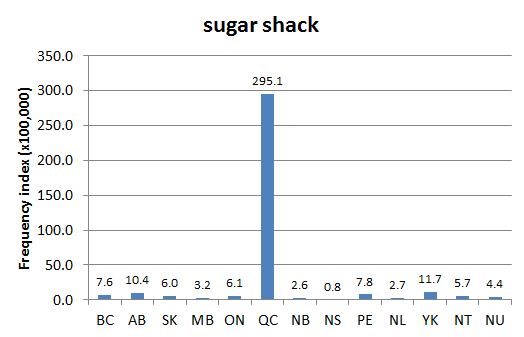DCHP-2
sugar shack Sugar Shack DCHP-2 (July 2016)
n. — especially Quebec
a cabin where maple sap is boiled into syrup and usually served to tourists.
Type: 4. Culturally Significant — Although sugar shacks can be found in the northeastern United States as well, they have a strong association with rural Quebec and, to a much lesser extent, Ontario. In Canada, the term is used most frequently in Quebec (see Chart 1). The term is an English equivalent of cabane à sucre, with sugar-hut or sugar hut being the historical Canadian English term.
See also COD-2, s.v. "sugar shack"(2), which is marked "esp. Que", and Gage-5, s.v. "sugar shack", which is marked "Cdn".
